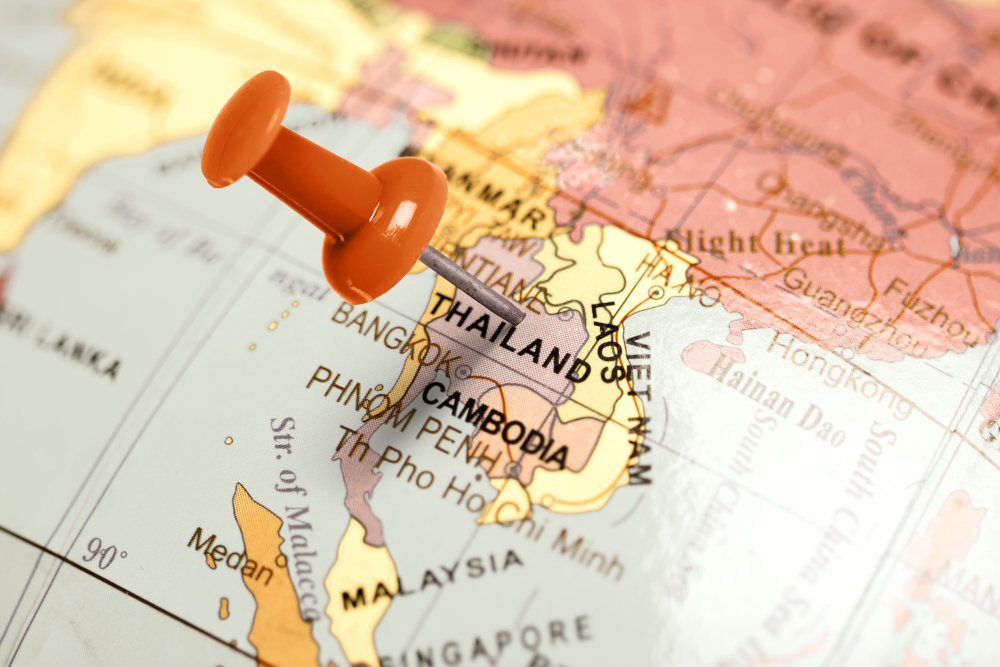
A draft law that would recriminalize cannabis in Thailand could severely restrict the business in CBD and other extracts derived from hemp flowers.
Health Minister Cholnan Srikaew has said he expects the cannabis law, intended mainly to reverse the previous government’s historic – if mismanaged – efforts to legalize marijuana, will be in place by the end of the year.
Because the law is still being written, it is unclear what provisions on hemp extracts will eventually be included. But the government of Thailand’s new Prime Minister, Srettha Thavisin, is on record as saying it intends to strictly regulate the production and sale of CBD, limiting use to medical products and research initiatives.
Thavisin’s center-left Pheu Thai Party, which has traditionally supported farmers, said it plans to develop industrial hemp primarily for non-psychoactive products such as seed-based foods, textiles, and building materials. CBD and other hemp-derived cannabinoids extracted from hemp flowers would only be available by doctor’s prescription, according to signals from Thavisin’s circles both before and after he became Prime Minister last August.
The Thavisin government’s position on CBD is a departure from the previous government’s policy, which allowed CBD to be used in a wide range of products, including food, beverages, and cosmetics.
Hemp’s path
Thailand was the first country in Southeast Asia to decriminalize all forms of cannabis, and one of only a handful of nations that initially set the THC level for hemp plants in the field at a full 1.0% by dry weight. Most countries observe 0.3% THC as the delineation between high-THC marijuana plants and industrial hemp.
The Thai government in late 2020 started allowing manufacturers to produce hemp seed oil- and extract-based cosmetics, and products from plant stalks. The government later approved hempseed oil derivatives for use in food and drinks.
Even before it was legalized, CBD became commonplace in Thailand. Some estimates showed the over-the-counter CBD business reached $55 million – 70-80% of the Thai legal cannabis market –in 2021, as producers eyed the possibilities in wellness and cosmetics, and food and beverages. Few figures on total market value were developed after that as the worldwide crash in the CBD business took hold.
At any rate, cannabis policies came into effect in 2022 that removed hemp and marijuana from the Thai Narcotics Act. While CBD with a THC content of less than 0.2% therefore became “more” legal, a more extensive regulatory structure was never really developed before the government changed hands last year.
Pot approaches $1.2 billion
The marijuana industry also exists in a state of legal and regulatory limbo, with all sales still technically restricted to medical purposes. That has not stopped the estimated 6,500-plus retail shops that opened since 2022, feeding an adult-use sector that is projected to reach $1.2 billion in the next year, according to Reuters. Other analysts have estimated the recreational market has the potential to reach $9.6 billion by 2030. That certainly won’t happen if the current draft law ends up on the books.
“There are no proper set of regulations in place when compared to the West. There are some rules, but it’s essentially the wild, wild, East,” Nadon Chaichareon, CEO of Teera Group, a Bangkok-based investor in medical cannabis, told Marijuana Business Daily.
“There’s no governance. There’s so many people doing it, the government doesn’t have the manpower to review everything,” Chaichareon said.
Also missing are testing requirements, a system for tracking marijuana products “seed-to-sale,” and taxation provisions to offset the costs of enforcing regulations.
Proposed new rules
Under marijuana provisions in the current draft law:
- Recreational use would be banned, with violations punishable by fines of up to 60,000 baht (about $1,700).
- Medical use remains legal specific restrictions are still under development.
- Businesses selling or growing cannabis will face stricter regulations, including licensing requirements, limitations on product types, and potential fines or closure for non-compliance.
- The police will be granted increased power to search cannabis businesses, seize products, and enforce regulations.
- Permitting for personal cultivation of marijuana, common for medical patients, will move away from a simple notification system to a licensing program.
Rollercoaster
Thailand became the first country in Asia to decriminalize marijuana in 2018 for medicinal purposes. Then, in a dramatic shift in June 2022, recreational use was legalized. Private growers had only to register their intentions to cultivate and process hemp and marijuana for health aids and traditional medicines, and hemp for industrial applications.
Almost immediately, more than 120,000 individuals stated their intentions to cultivate hemp and marijuana through an easy-to-use registration platform hosted by the Thai Food and Drug Administration. The unexpected flood of registrations caused the agency to set up a second registration app.
The liberalization stood in stark contrast to Thailand’s past in which cannabis possession carried severe penalties, including lengthy prison sentences. The policy redirection was driven by economic and social factors as the government of Prayut Chan-o-cha saw cannabis as a potential cash crop for farmers and a boost to medical tourism.
As decriminalization unfolded rapidly beginning in 2022, the freewheeling market caused concern – particularly regarding public consumption of marijuana and potential negative impacts on tourism.






